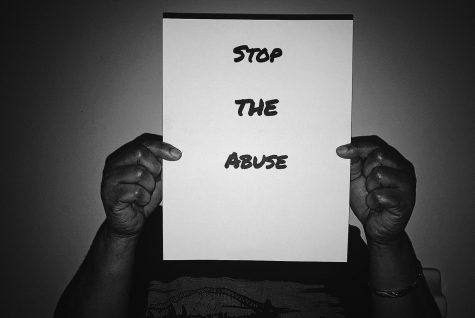iGeneration
Original artwork by Katia Campos
January 31, 2018
As soon as the bell rings after school, a fourteen-year-old girl in her final year of middle school grabs her phone from her backpack and starts scrolling through social media. This young girl prides herself on knowing how many new likes and followers she has gained in the past few hours, rather than what is going on in real life, just like many others.
Compared to the past, we, the “iGeneration”, also known as “Generation Z”, have been proven to not only be more self-obsessed, but less social than other generations before. But why?
Since it was invented, social media has had the opportunity to create and mold a group of people who tend to care more about themselves than others, which sadly, it has achieved.
“Compared to generations in the past and what I’ve seen before, no group of people has ever acted this way before”, said a Somerset parent. “I think social media has actually made teenagers who are part of the iGeneration are more self-absorbed”.
Impact
Teens today are typically always on Instagram, Snapchat, or Twitter. They are letting their friends or complete strangers see their account just to have a mass following, while seeing how many followers they gained or lost each day. Teens on Snapchat are also recording teachers and students in the classroom; Kids are on their phones all day in class or between classes. Even when teens want to talk to someone, they sometimes will call, text, or video chat. Members of the iGeneration will even text or call their parents when they’re in the room next to them.
Compared to Past Generations
As mentioned before, the iGeneration has been proven to be one of the most self-obsessed generations yet. We were born with cell phones in our hands and social media in our faces, which no other generation had. According to Jean Twenge, author of the book iGen: Why Today’s Super-Connected Kids Are Growing Up Less Rebellious, More Tolerant, Less Happy–and Completely Unprepared for Adulthood–and What That Means for the Rest of Us, she said that the, “iGeneration teens are less confident and less optimistic than the Millennials just before them”. This could be due to the facts that teens today are more reliant on their parents. “They will need more guidance and reassurance than Millennials to reach their goals”, said Twenge.
Adulthood
When these teens grow up, they may not have learned many manual or vocational skills on their own. If anything breaks, like a computer or a vacuum, they will likely throw it away and buy a new one. If they do try to fix it, they would most likely google how to do it or even go to Instagram videos for instruction, which will lead them to rely on this in the future as adults.
Statistics
Performed studies which show statistics about the iGeneration have proven just how different we are. As of 2015, “Seventy-nine percent of Generation Z consumers display symptoms of emotional distress when kept away from their personal electronic devices” (cmo.com). Cmo.com also states that, “Fifty-five percent of those of eighteen years of age or younger would rather buy clothes online”. Both statistics further prove how dependent the iGeneration has become on technology.
“Social media has definitely changed the way kids act, which has changed their priorities” said Nicole Rinier.











